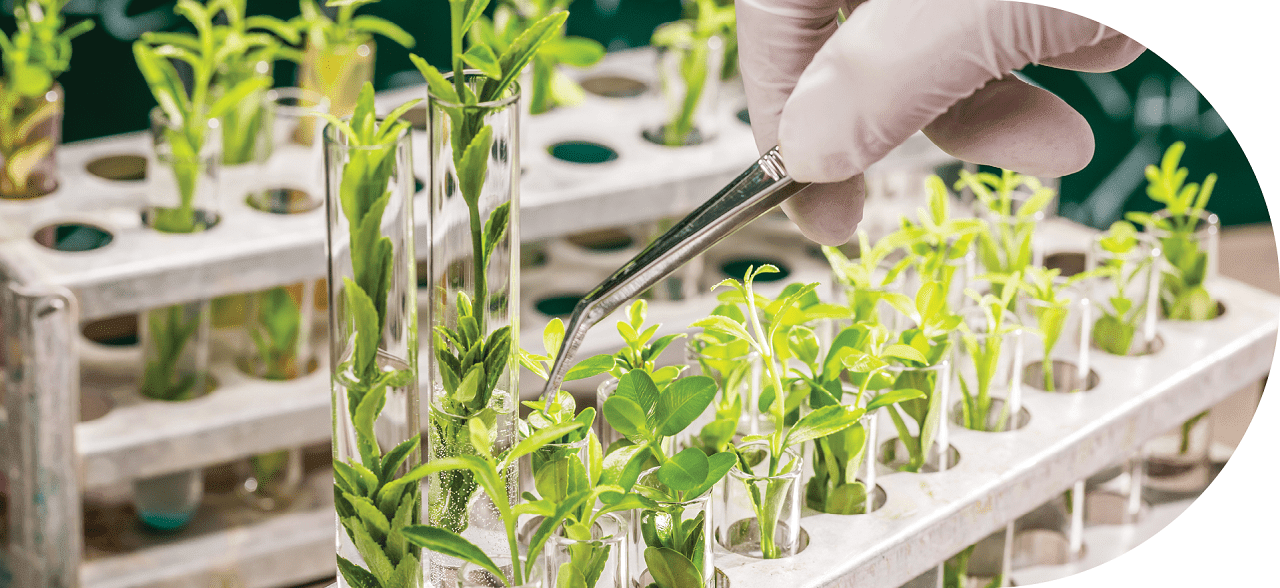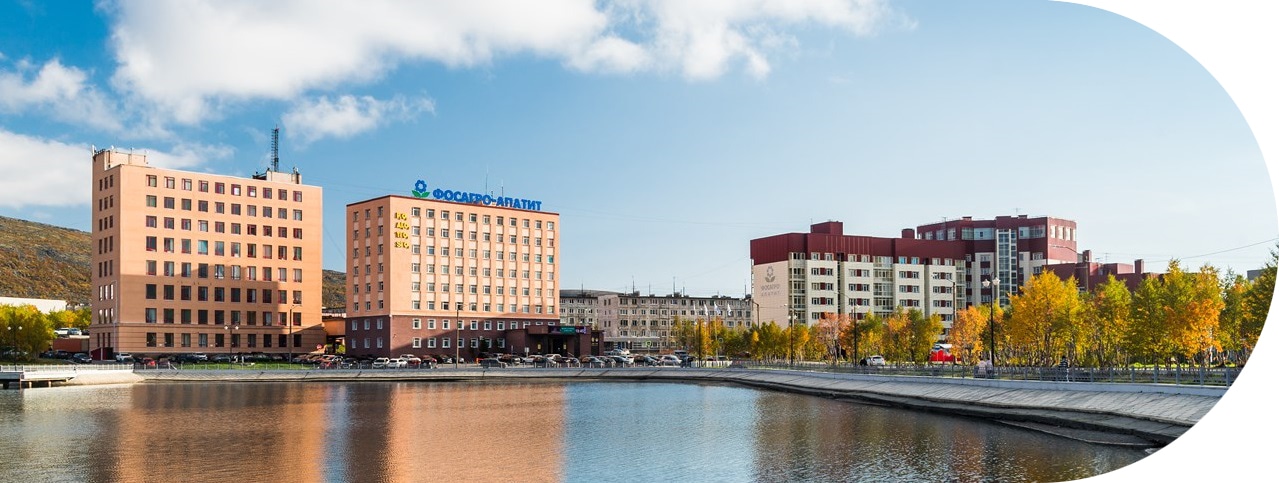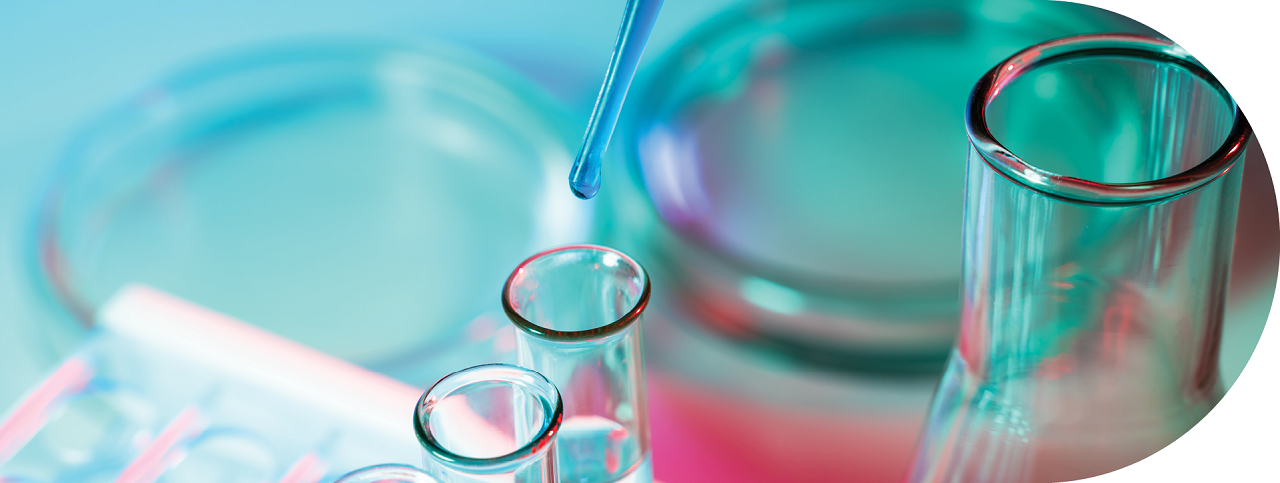Contribution to the SDGs
GRI: 102-12, 102-13
As a supplier of essential crop nutrients to farmers in more than 100 countries around the world, PhosAgro plays an important role in supporting global food security. Contributing to the UN Sustainable Development Goals in several areas, we recognise the importance of all 17 SDGs and focus on ten of them.

Targets
- By 2030, ensure sustainable food production systems and implement resilient agricultural practices that increase productivity and production, that help maintain ecosystems, that strengthen capacity for adaptation to climate change, extreme weather, drought, flooding and other disasters and that progressively improve land and soil quality.
- Increase investment, including through enhanced international cooperation, in rural infrastructure, agricultural research and extension services, technology development and plant and livestock gene banks in order to enhance agricultural productive capacity in developing countries, in particular least developed countries.
Measures being taken by the Company
- The Samoilov Scientific Research Institute for Fertilizers and Insectofungicides (part of PhosAgro Group) and PhosAgro’s in-house Innovation Centre implement projects aimed at improving the efficiency of mineral fertilizers produced by the Company, and reducing the environmental impact of both their production and use.
- PhosAgro carries out joint agricultural research with leading Russian and foreign educational and research institutions to study the properties of mineral fertilizers and ways to make their use more efficient in order to produce enough healthy food for the planet’s growing population, preserve soil fertility and purity, boost yields and ensure stable agricultural production in a high-risk farming environment.
Progress in 2019
- We are implementing a two-step dihydrate-hemihydrate process for the production of wet-process phosphoric acid at our facilities, and a technology for integrated treatment of by-products. The Company has also launched the production of PKS and NPKS fertilizers.
- We completed all the trials scheduled for 2019 in partnership with leading research institutions such as SGS, DLG Group, ABS Foundation, MT Foundation, Agricola 2000, and other organisations in Europe and Latin America. More than 80 trials were conducted on 14 popular crops.
- In 2019, PhosAgro successfully held 15 field days across Russia, Poland, and France.

Targets
- Achieve universal health coverage, including financial risk protection, access to quality essential health-care services and access to safe, effective, quality and affordable essential medicines and vaccines for all.
- By 2030, substantially reduce the number of deaths and illnesses from hazardous chemicals and air, water and soil pollution and contamination.
Measures being taken by the Company
-
PhosAgro supports the Bakulev National Medical Research Centre of Cardiovascular Surgery by investing in research on diagnosing and treating cardiovascular diseases, and advanced unplanned surgery. The Company runs the Health and Leisure and Improvement of Working Conditions social programmes for its employees.
Our another large-scale social initiative is the Educated and Healthy Children of Russia (DROZD) project. As part of our partnership with local and regional administrations, we provide funding to healthcare facilities across our footprint.
- PhosAgro is also a member of the Safer Phosphates alliance, whose mission is to share knowledge and address concerns about heavy metals that are present in some phosphate-based fertilizers.
Progress in 2019
-
As part of the DROZD Village programme, a new gym has been opened in Kormezhka village, Balakovsky District, Saratov Region. The project was jointly funded by PhosAgro (RUB 300,000) and the local government (RUB 250,000).
In 2019, the number of children attending DROZD courses increased by 10.5% to 5,861.
- We updated the design of the Company’s website for the Safer Phosphates programme, improved navigation and optimised messaging. The website content was updated to reflect the recent developments in connection with the ongoing debates around cadmium in the European Union. It now includes information from the partners of the Safer Phosphates programme and regular updates available via social media.

Targets
- By 2030, ensure that all girls and boys complete free, equitable and quality primary and secondary education leading to relevant and effective learning outcomes.
- By 2030, substantially increase the number of youth and adults who have relevant skills, including technical and vocational skills, for employment, decent jobs and entrepreneurship.
- By 2020, substantially expand globally the number of scholarships for enrolment in higher education, including vocational training and information and communications technology, technical, engineering and scientific programmes, in developed countries and other developing countries.
Measures being taken by the Company
- We implement the PhosAgro Schools project aimed at providing school students with career guidance, expanding their knowledge, sharing experience and enhancing the quality of education.
-
The Company has built strong partnerships with Russia’s key mining universities based on bilateral agreements on internships, scholarships for the best students, and the High-Potential Graduates programme.
As part of the PhosAgro College initiative, we provide targeted funding to technical colleges to enhance their research base, supply them with necessary equipment, establish incentives for teachers and students, and offer career guidance.
- In cooperation with the International Union of Pure and Applied Chemistry (IUPAC), PhosAgro supports the participation of young scientists from developing economies in Summer Schools on Green Chemistry.
Progress in 2019
- PhosAgro Classes Fest in Sochi brought together 140 students from specialised classes created by PhosAgro in communities where it operates. A special playground was installed in Kindergarten No. 70 in Balakovo to help children learn road safety rules.
- From the inception of PhosAgro Classes to the end of 2019, the total spend on refurbishment, repair, installation of new computer hardware and laboratory equipment in the schools of Cherepovets, Balakovo, Kirovsk and Volkhov exceeded RUB 410 mln.
- In 2019, the second Summer School on Green Chemistry was held at the University of Dar es Salaam in Tanzania. Part of the Company’s contribution was used to fund grants for talented young scientists from Africa.

Targets
- By 2030, improve water quality by reducing pollution, eliminating dumping and minimising release of hazardous chemicals and materials, halving the proportion of untreated wastewater and substantially increasing recycling and safe reuse globally.
- By 2020, protect and restore water-related ecosystems, including mountains, forests, wetlands, rivers, aquifers and lakes.
Measures being taken by the Company
-
PhosAgro Group takes part in the Rehabilitation of the Volga River national project.
The Volkhov Branch of Apatit has implemented a closed-loop wastewater treatment system at its facilities to prevent the discharge of effluents into the Volkhov River.
The Kirovsk Branch of Apatit takes active measures under the programme to reduce discharge and improve wastewater quality.
- The Company supports the release of juvenile fish species into water bodies and tree planting initiatives.
Progress in 2019
- As part of the production upgrade, PhosAgro approved the initiative aimed at optimising water use by Apatit in Cherepovets. The programme looks to ensure efficient water use from surface water sources and reduce waste water discharge.
- 150,000 fingerlings of sterlet, salmon, carp and silver carp were released into rivers and water reservoirs in 2019 as part of the programme for the reproduction of aquatic bioresources.

Targets
- Achieve higher levels of economic productivity through diversification, technological upgrading and innovation, including through a focus on high-value added and labour-intensive sectors.
- Promote development-oriented policies that support productive activities, decent job creation, entrepreneurship, creativity and innovation, and encourage the formalisation and growth of micro-, small- and medium-sized enterprises, including through access to financial services.
- By 2030, devise and implement policies to promote sustainable tourism that creates jobs and promotes local culture and products.
Measures being taken by the Company
-
Being a leader in terms of labour productivity growth, the Company strives to push it even further by introducing new technologies and staff training, as well as running efficiency improvement programmes and streamlining business processes.
Every year from 2013 to 2019, we increased our labour productivity by some 18%.
- Apatit (Cherepovets) expects that production development investment projects implemented at its Kirovsk, Volkhov and Balakovo branches will create more than 500 new jobs for highly qualified employees by 2025. It also carries out a number of social programmes focused on healthcare, improvement of working environment, housing and social benefits to ensure decent working conditions.
- The Company supports the Bolshoi Vudyavr project and the upgrade of the Khibini Airport, which will be a new growth area for the economies of the Apatity and Kirovsk regions. By making investments in the ski resort, we support small and medium-sized service, trade and hotel businesses in the region.
Progress in 2019
- In 2013–2019 our labour productivity increased by an impressive 160% at PhosAgro’s Kirovsk production site and by 170% at other Group’s assets
- In 2019, 100 new jobs were created at Apatit’s Vostochny mine, including self-propelled machine operators, truck drivers, and support staff.
- In 2019, the Company invested over RUB 800 mln in the Khibini Airport and Tirvas Sanatorium infrastructure. In five years, the aggregate tourist flow has seen a more than 300% rise, exceeding 175,000 people in 2019.

Targets
- By 2030, upgrade infrastructure and retrofit industries to make them sustainable, with increased resource-use efficiency and greater adoption of clean and environmentally sound technologies and industrial processes, with all countries taking action in accordance with their respective capabilities.
- Enhance scientific research, upgrade the technological capabilities of industrial sectors in all countries, in particular developing countries, including, by 2030, encouraging innovation and substantially increasing the number of research and development workers per 1 mln people and public and private research and development spending.
Measures being taken by the Company
- PhosAgro has successfully implemented its Strategy 2020, the largest investment programme in the Group’s history, resulting in 1.5x production expansion and reaching an output of up to 9.5 mln t of fertilizers and feed phosphates over the past five years. All the new facilities fully comply with the most stringent environmental laws and regulations in both Russia and Europe.
- The Samoilov Scientific Research Institute for Fertilizers and Insectofungicides (NIUIF), Russia’s only and one of Europe’s leading agrochemical research institutes, is part of PhosAgro Group. We support research aiming to develop green chemistry technologies, including those related to crop nutrients production.
Progress in 2019
- PhosAgro, together with the Saratov National Research University, showcased the results of successful application of phosphogypsum in road construction over many years during the 5th Innovations in Road Construction International Forum in Sochi.
-
In 2019, we partnered with UNESCO to run the International Year of the Periodic Table of Chemical Elements.
We also supported the All-Russian Mendeleev Chemical Students Competition and the Mendeleev Congress on General and Applied Chemistry. The Company organised field conferences at the trial station of AgroGard’s Orel branch, and also held field days.

Targets
- By 2030, ensure access for all to adequate, safe and affordable housing and basic services and upgrade slums.
Measures being taken by the Company
-
We ensure comfortable living environment for our employees and their families, as well as for the rest of local population across our footprint, investing in housing construction and social infrastructure development.
We are supporting a project for the development of Bolshoi Vudyavr Ski Resort and the upgrade of the Khibini Airport in Kirovsk and Apatity.
As part of our cooperation with the Murmansk Region Administration and in accordance with the partnership agreement for 2017–2019, PhosAgro provides co-funding totalling RUB 700 mln for social infrastructure projects and events.
Progress in 2019
- A multi-storey residential building in Kirovsk and several buildings in Cherepovets were constructed under the corporate housing programme. In Volkhov and Balakovo, the Company’s employees are offered subsidised mortgage loans. The number of apartments provided to the employees as part of the corporate housing programme has exceeded 2,500 by 2019.

Targets
- By 2020, achieve the environmentally sound management of chemicals and all wastes throughout their life cycle, in accordance with agreed international frameworks, and significantly reduce their release to air, water and soil in order to minimise their adverse impacts on human health and the environment.
- By 2030, substantially reduce waste generation through prevention, reduction, recycling and reuse.
- Encourage companies, especially large and transnational companies, to adopt sustainable practices and to integrate sustainability information into their reporting cycle.
Measures being taken by the Company
-
NIUIF (part of the Group) is developing a technology for the integrated treatment to recycle waste from wet-process phosphoric acid production into ammonium sulphate.
As part of the Green Chemistry for Life, a project implemented jointly with UNESCO, PhosAgro launched a grant programme to support research on phosphogypsum processing.
- We allocate substantial funds to projects aiming to prevent generation of waste or recycle it in an efficient manner.
- We employ production technologies that help preserve non-renewable resources. PhosAgro possesses power generation facilities of its own with a total capacity of 210 MW, covering more than 40% of the Group’s energy needs.
Progress in 2019
- In partnership with UNESCO and the International Union of Pure and Applied Chemistry (IUPAC), the Company provided grants to young experts engaged in research and development in green chemistry. One of the grants, which was awarded for the third time, aims to support research in phosphogypsum recycling and reuse.
- In 2019, we continued the re-equipment of aluminium fluoride production to use all the fluorine extracted as a result of phosphate rock processing and reduce the amount of solid waste. We have launched a multi-purpose waste management facility as part of Ecoprom project at our site in Kirovsk.
- The Group has completed a large-scale investment project, a cutting edge granulated urea and ammonia production unit in Cherepovets, Vologda Region, an example of energy efficiency and sustainable use of natural resources.

Targets
- By 2030, combat desertification, restore degraded land and soil, including land affected by desertification, drought and floods, and strive to achieve a land degradation-neutral world.
- Take urgent and significant action to reduce the degradation of natural habitats, halt the loss of biodiversity and, by 2020, protect and prevent the extinction of threatened species.
Measures being taken by the Company
-
The Company and the Food and Agriculture Organisation of the United Nations (FAO) are jointly running an initiative to promote efficient soil management solutions.
Under the initiative, Regional Soil Laboratories Networks (RESOLAN) are created and consolidated into Global Soil Laboratories Networks (GLOSOLAN) across Latin America, Asia, Africa, and Middle East. PhosAgro plays a key role in the project as the Group is developing a unified global framework to promote technology and know-how in sustainable land use and agriculture.
- PhosAgro Group takes part in a programme for studying and protecting the Amur tiger population.
Progress in 2019
- The Development of Sustainable Soil Management project was launched in January 2019. Its first stage is focused on designing the Soil Doctor Testing Kit to be distributed in the countries participating in the programme (5,000 farmers).
- The Company spent RUB 10 mln on projects under the cooperation agreement for studying and protecting the Amur tiger population.

Targets
- Enhance the global partnership for sustainable development, complemented by multi-stakeholder partnerships that mobilise and share knowledge, expertise, technology and financial resources, to support the achievement of the sustainable development goals in all countries, in particular developing countries.
Measures being taken by the Company
-
Together with UNESCO and IUPAC, PhosAgro has initiated and run the Green Chemistry for Life grant programme for young scientists doing research in line with the 12 Principles of Green Chemistry.
Safer phosphates is an initiative established by PhosAgro in partnership with other fertilizer producers to share knowledge and address concerns about heavy metals that are present in some phosphate-based fertilizers.
As an active member of the International Fertilizer Association (IFA), PhosAgro contributes to many of its projects.
Progress in 2019
- On 6 February 2019, PhosAgro joined the Global Compact Network Russia. Since January 2019, the Company has been taking part in the two platforms promoting responsible business and eliminating issues that arise when implementing the global goals – Business Reporting on the SDGs and Health is Everyone’s Business. In September 2019, PhosAgro was included in the LEAD, a group of Global Compact participants that have achieved the best results in corporate social responsibility.